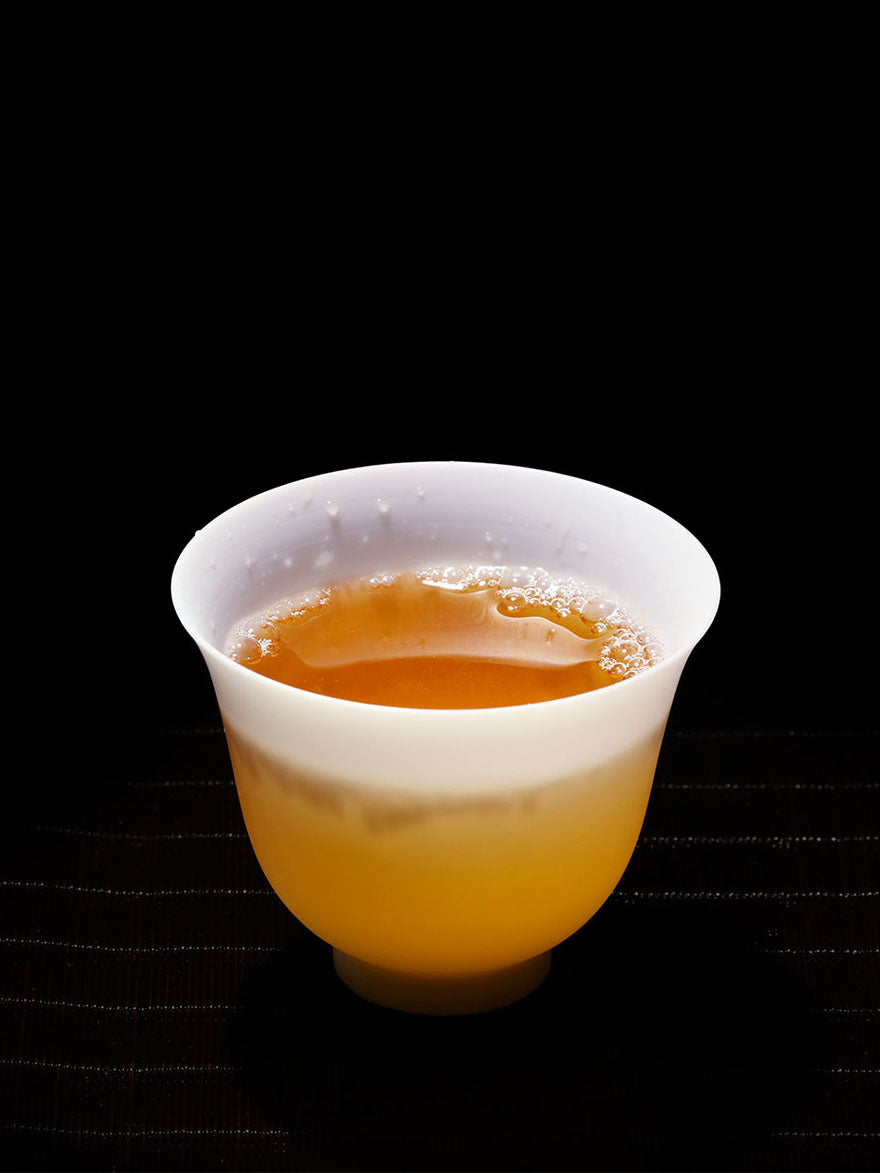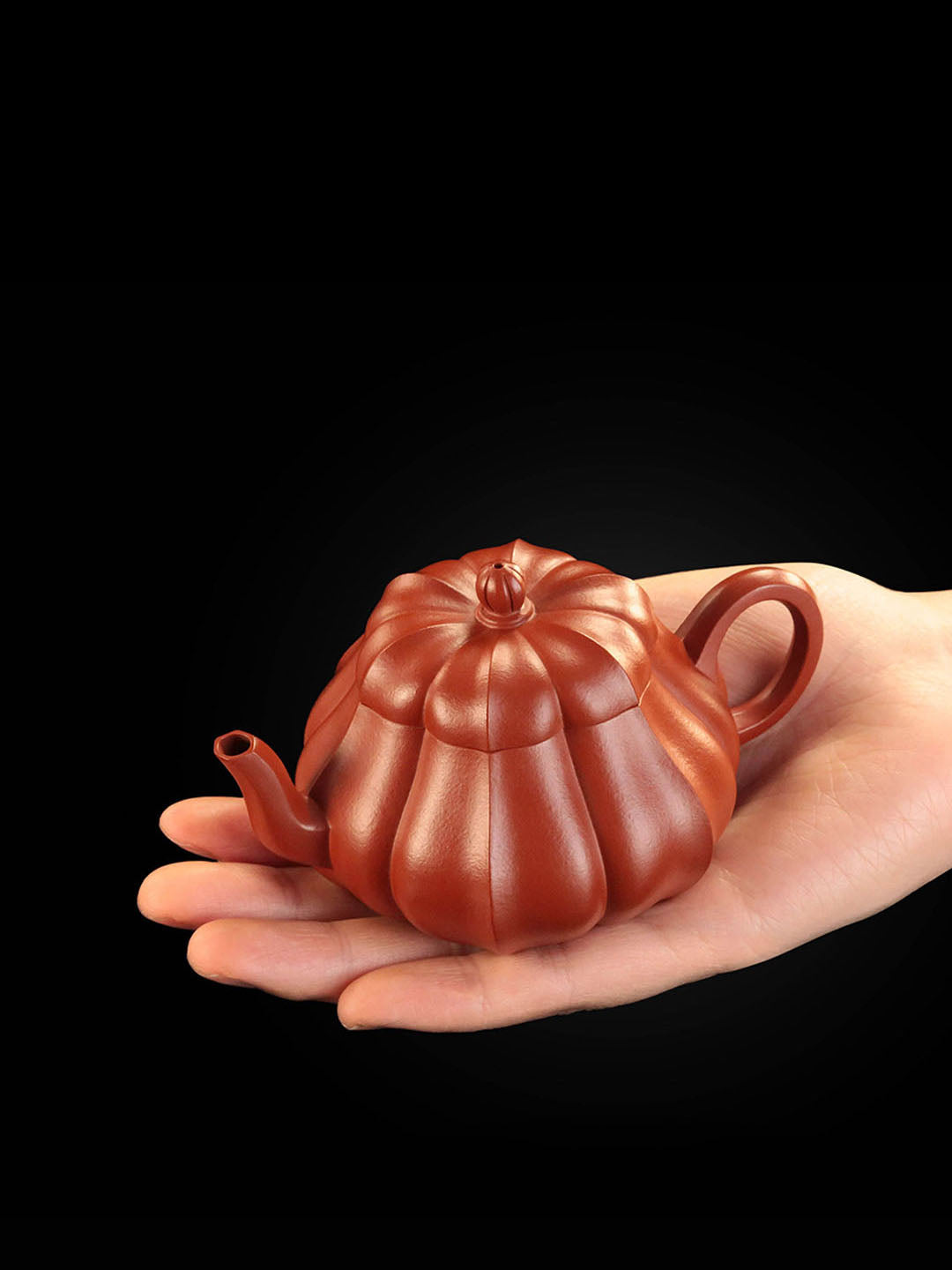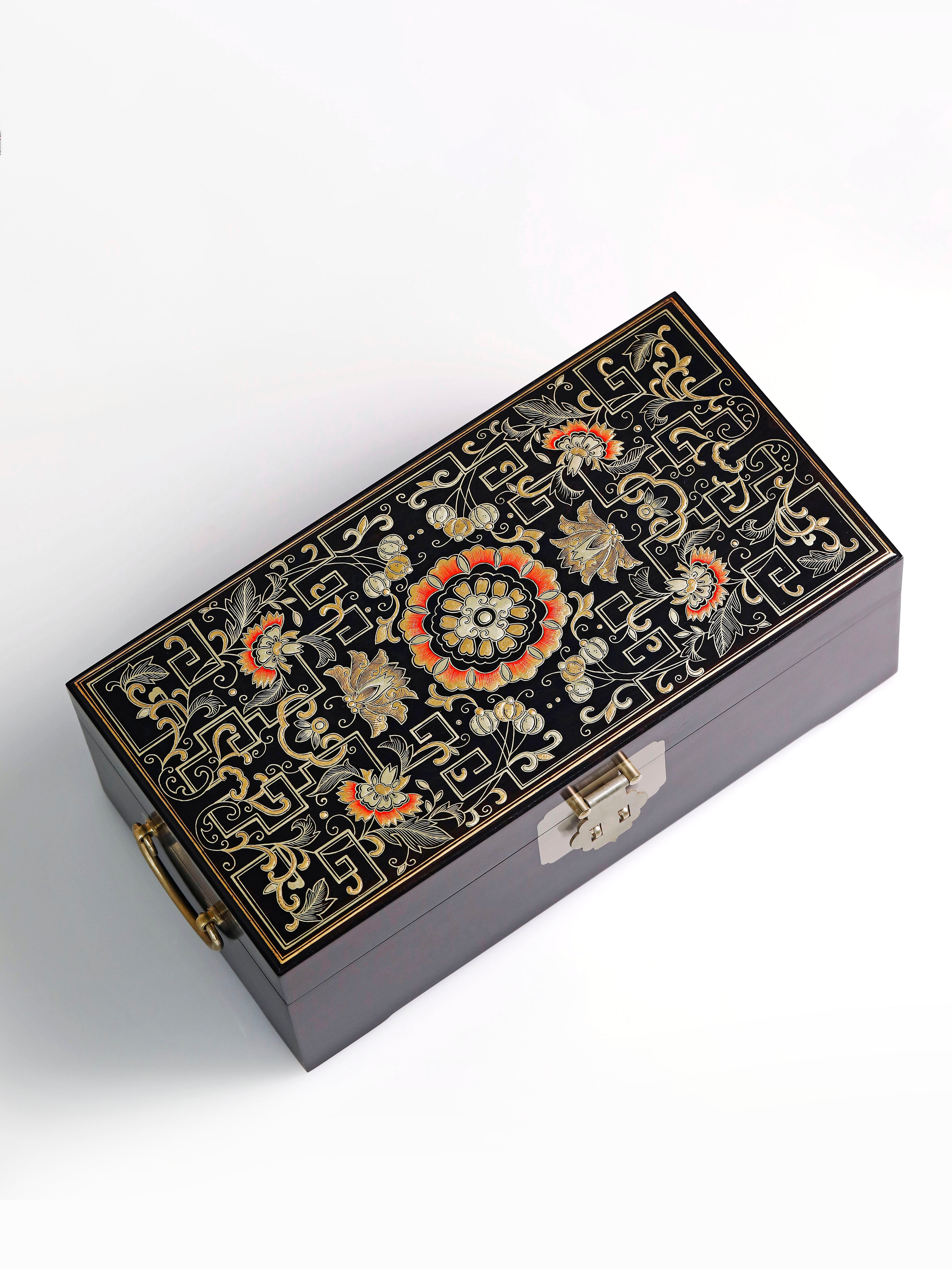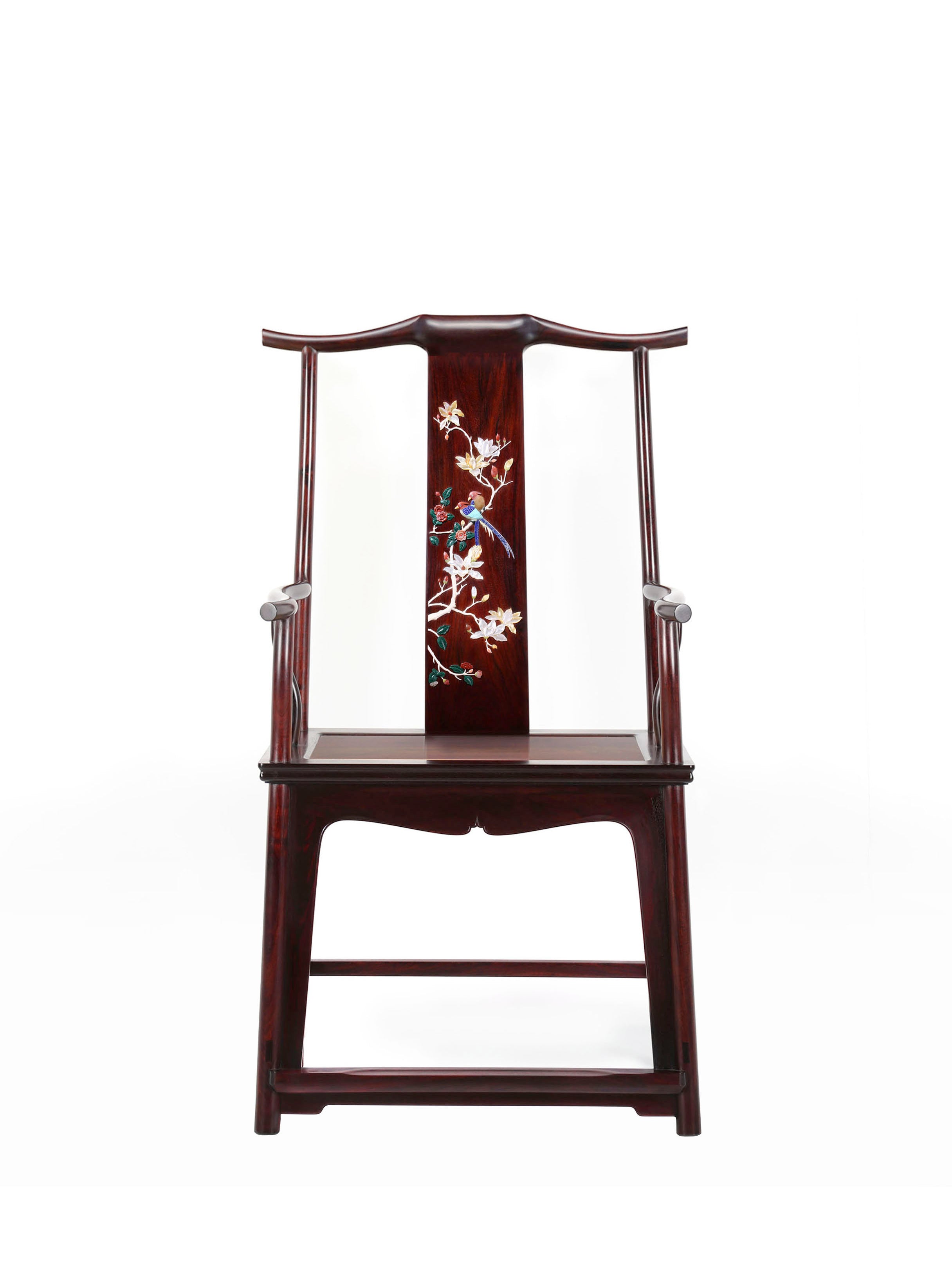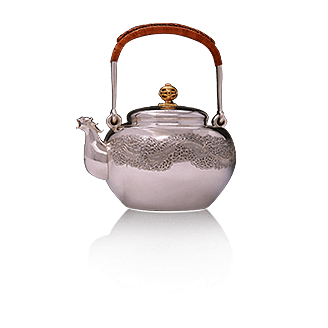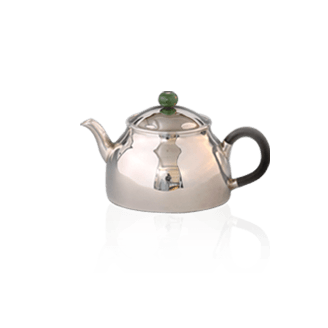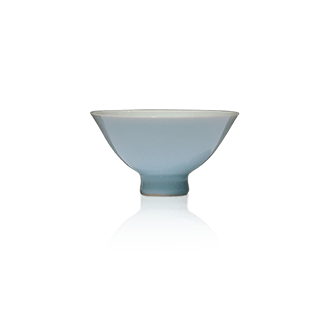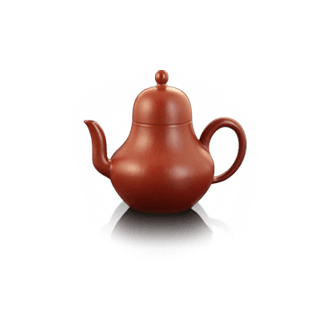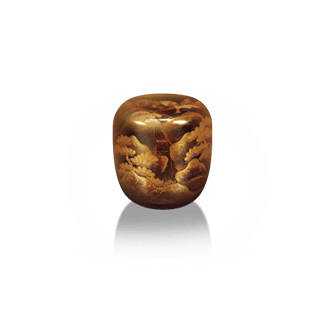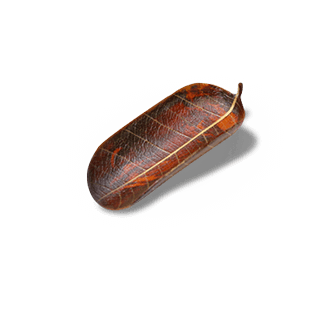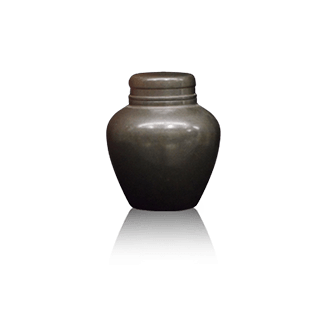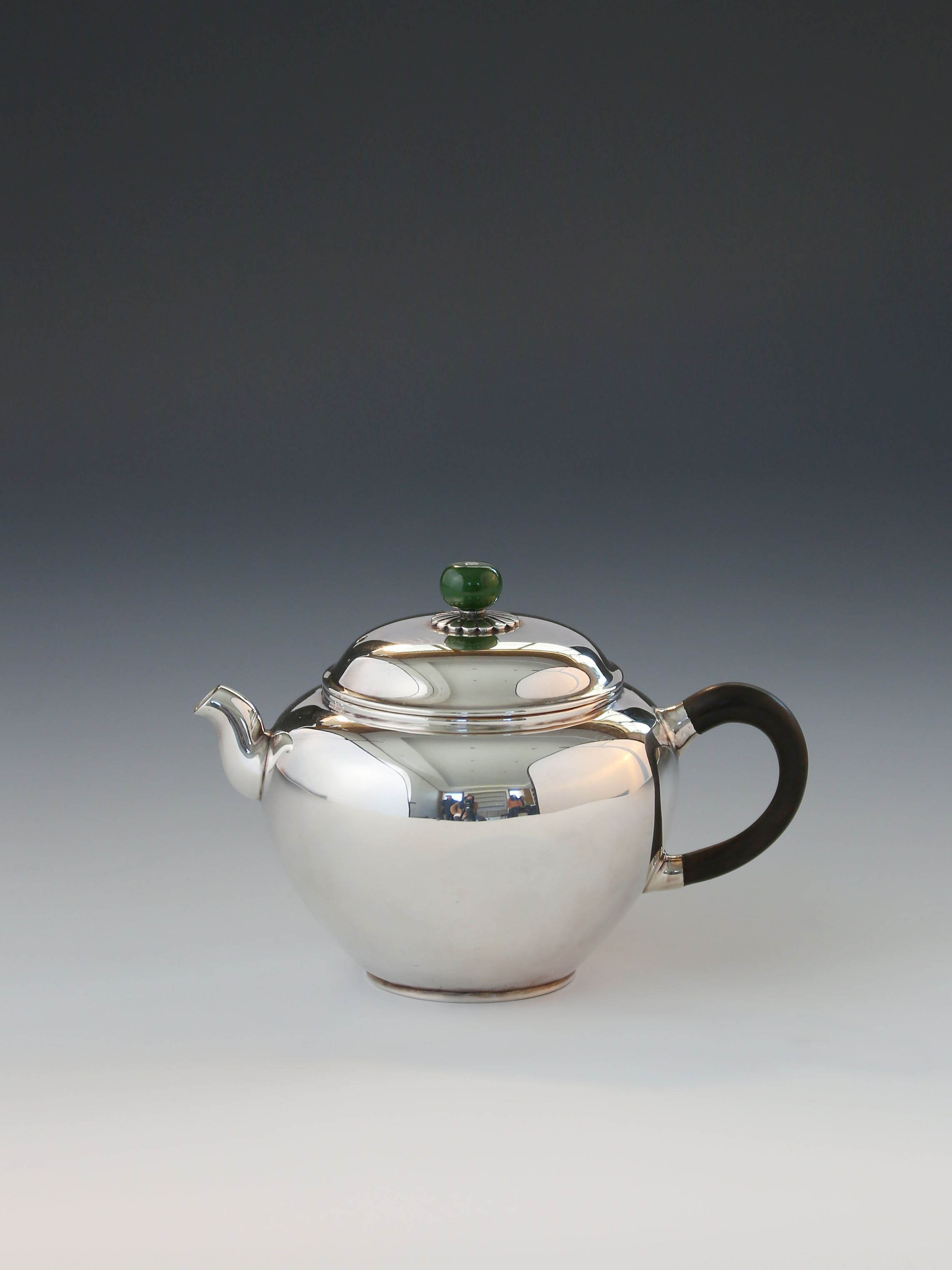

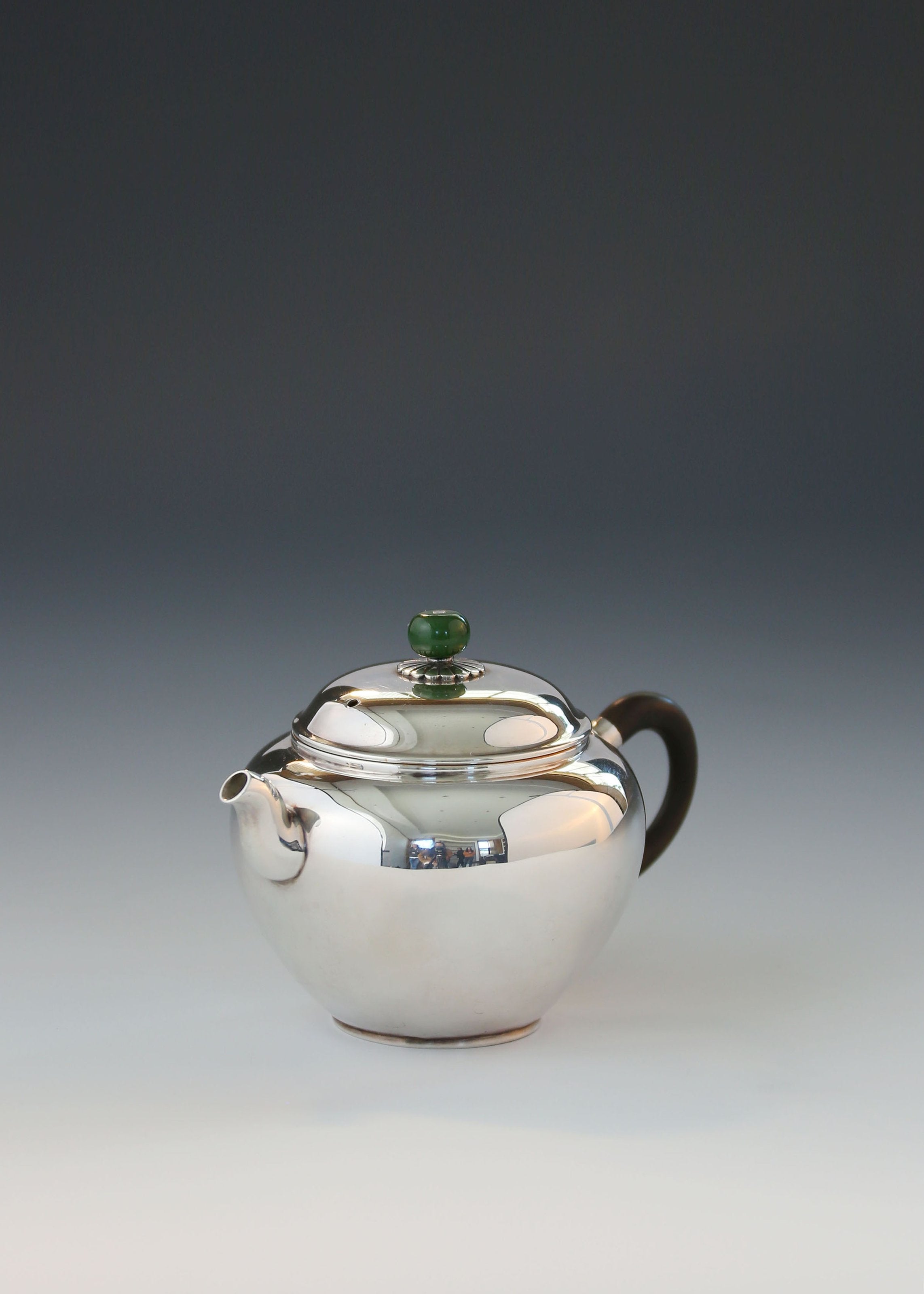


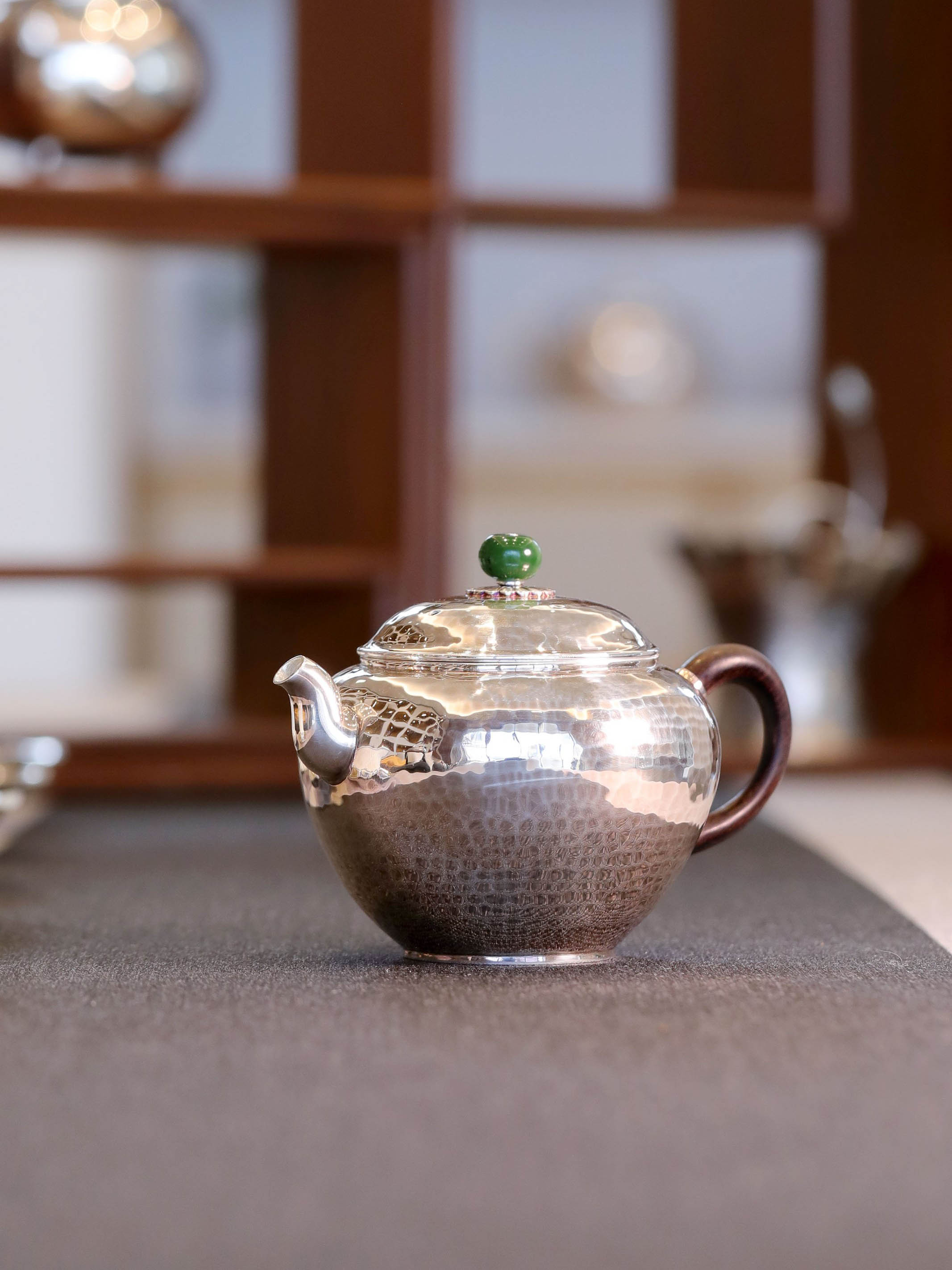

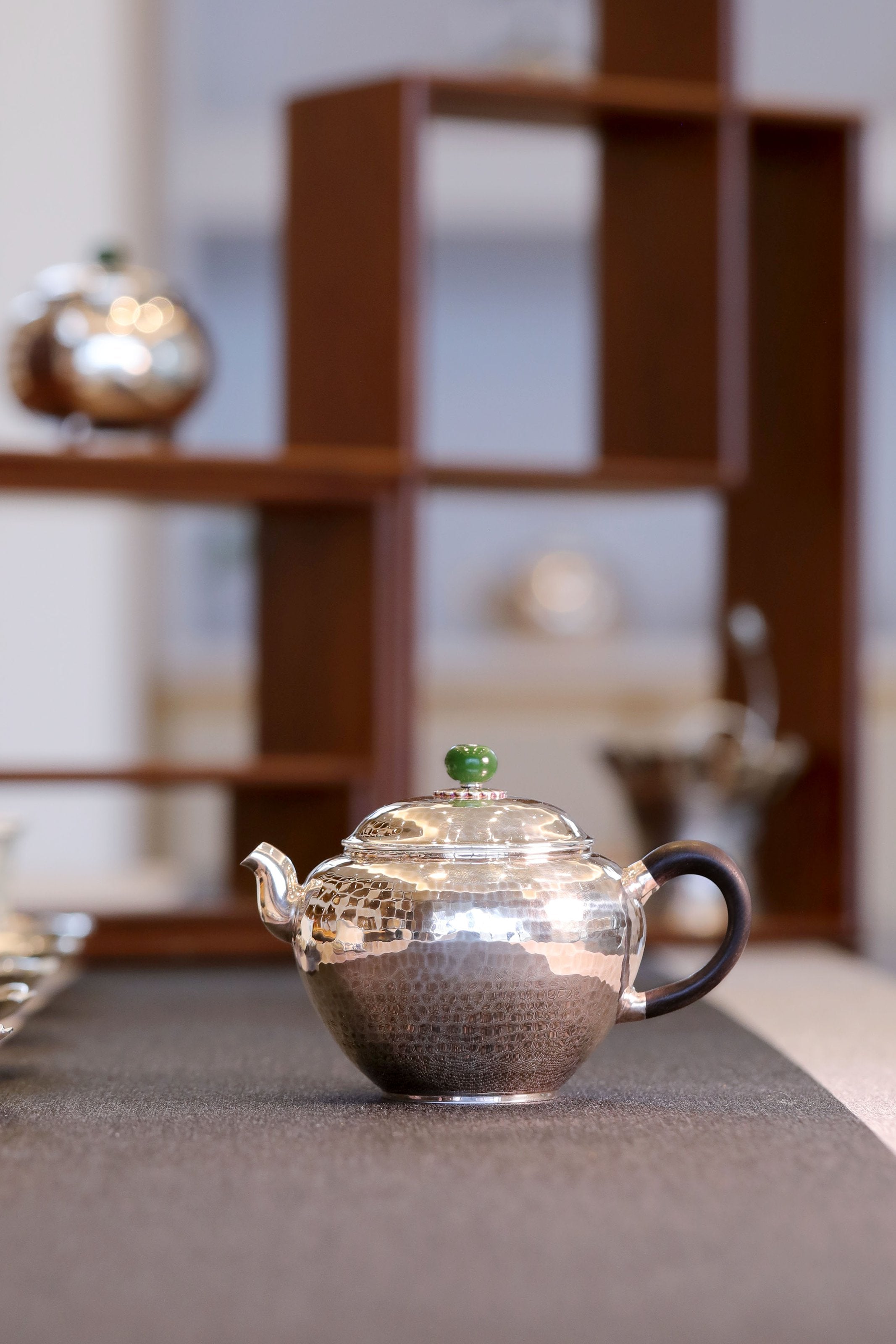
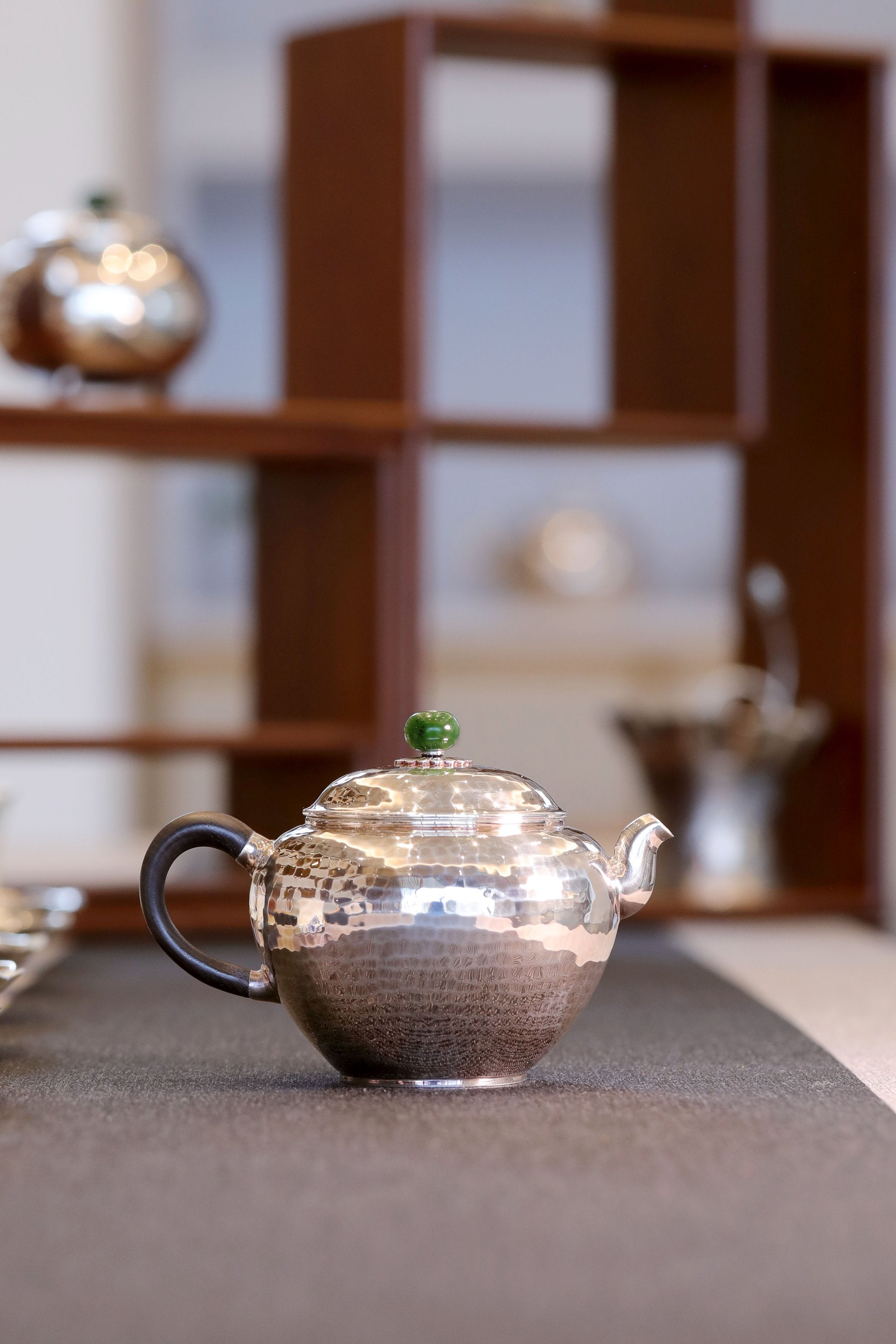

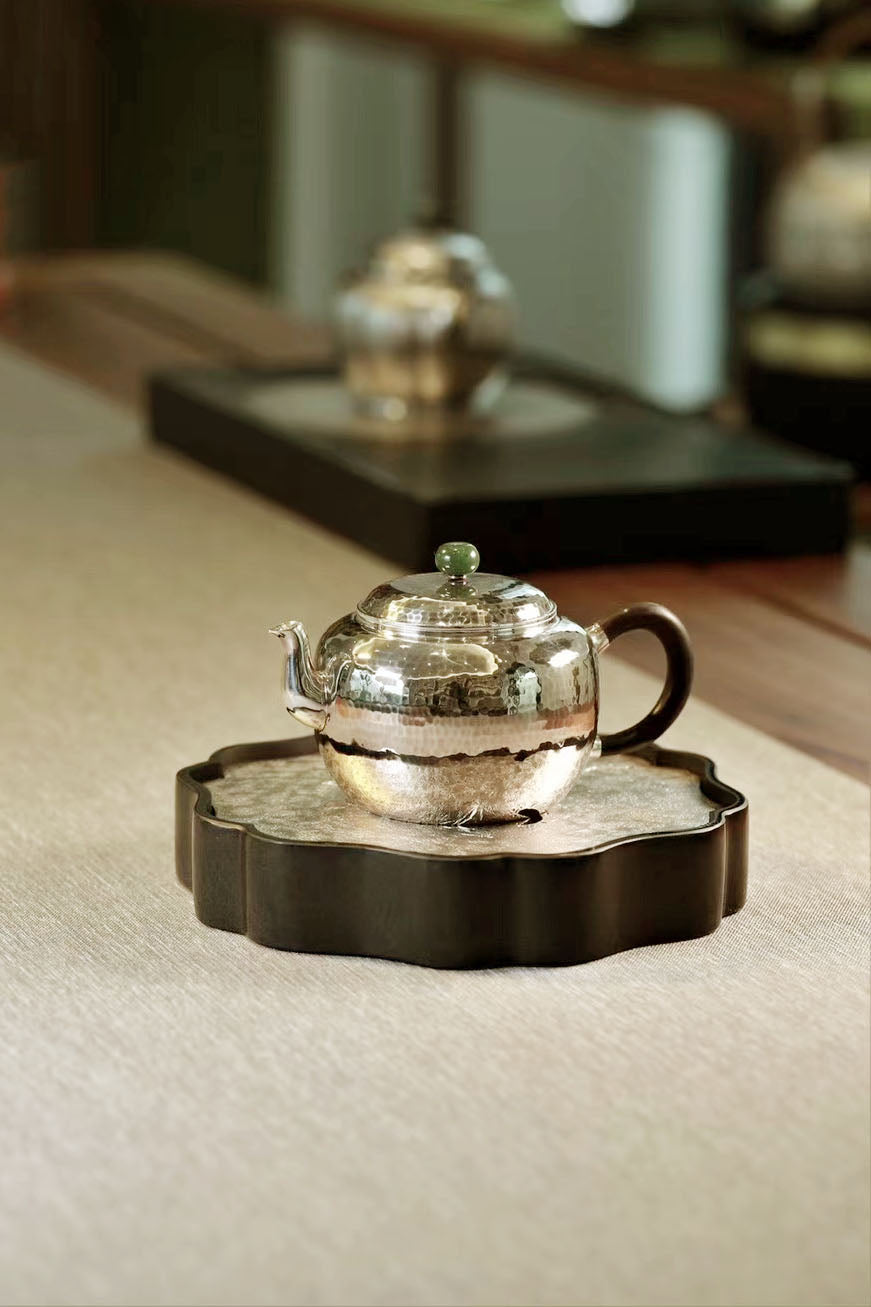

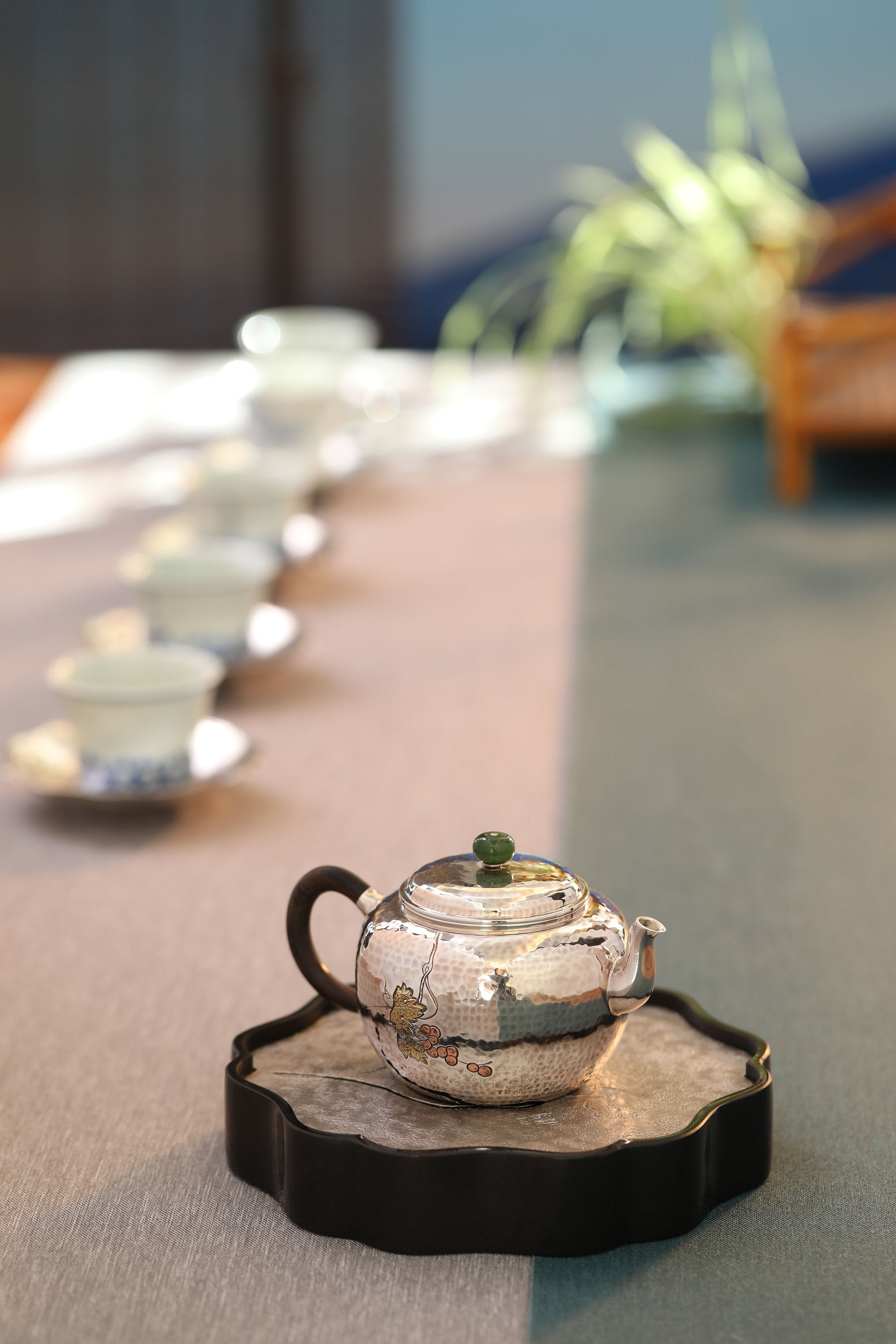
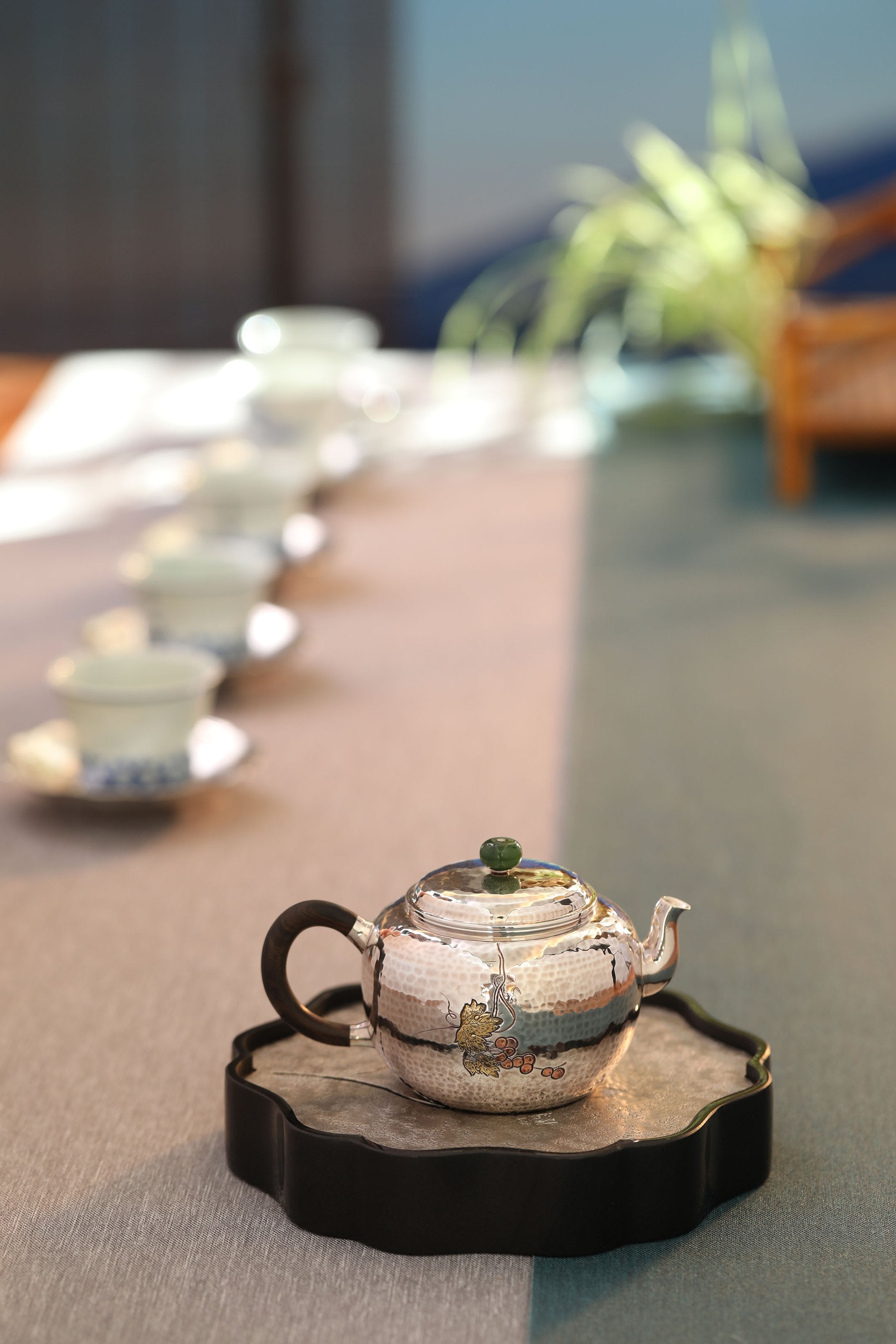
Pick a teapot with plain noodles/chopped raisins/grapes
















Pick a teapot with plain noodles/chopped raisins/grapes
Pick a teapot with plain noodles/chopped raisins/grapes
Pick a teapot with plain noodles/chopped raisins/grapes
Works by Li Fuming, inheritor of the intangible cultural heritage of silver forging techniques
Made by Li Fuming, inheritor of the intangible cultural heritage of silver forging techniques, from Dayatang. Pure silver. Weight: approx. 160 grams. Capacity: approx. 150 ml.
This Qichuiduo pure silver teapot is produced by Dayatang and made by Li Fuming, an inheritor of the intangible cultural heritage of silver forging techniques.
Teacher Li seamlessly blends the aesthetic charm of silverware with the traditional Chinese Zisha (purple clay) design. The piece, though small in size, exudes grandeur. The body is crafted using the hammering technique, featuring a three-bend spout, an antique rosewood handle for heat protection, and a sulfur treatment that removes any superficial embellishment, resulting in a simple yet elegant form.
The term "掇只" originates from a type of Zisha teapot. The origin of the 掇只 shape: In the Yixing County Annals, a teapot worth a thousand gold pieces was called "掇只". In the local Yixing dialect, a container for seasonings and candies was called "掇子". Because "子" is an entering tone, and the entering tone is no longer pronounced in standard Mandarin, it gradually became mistakenly transmitted as "掇只".
Works by Li Fuming, inheritor of the intangible cultural heritage of silver forging techniques
Made by Li Fuming, inheritor of the intangible cultural heritage of silver forging techniques, from Dayatang. Pure silver. Weight: approx. 160 grams. Capacity: approx. 150 ml.
This Qichuiduo pure silver teapot is produced by Dayatang and made by Li Fuming, an inheritor of the intangible cultural heritage of silver forging techniques.
Teacher Li seamlessly blends the aesthetic charm of silverware with the traditional Chinese Zisha (purple clay) design. The piece, though small in size, exudes grandeur. The body is crafted using the hammering technique, featuring a three-bend spout, an antique rosewood handle for heat protection, and a sulfur treatment that removes any superficial embellishment, resulting in a simple yet elegant form.
The term "掇只" originates from a type of Zisha teapot. The origin of the 掇只 shape: In the Yixing County Annals, a teapot worth a thousand gold pieces was called "掇只". In the local Yixing dialect, a container for seasonings and candies was called "掇子". Because "子" is an entering tone, and the entering tone is no longer pronounced in standard Mandarin, it gradually became mistakenly transmitted as "掇只".














Frequently asked questions
Use the FAQ section to answer your customers' most frequent questions.
Order
Yes, we ship all over the world. Shipping costs will apply, and will be added at checkout. We run discounts and promotions all year, so stay tuned for exclusive deals.
It depends on where you are. Orders processed here will take 5-7 business days to arrive. Overseas deliveries can take anywhere from 7-16 days. Delivery details will be provided in your confirmation email.
You can contact us through our contact page! We will be happy to assist you.
